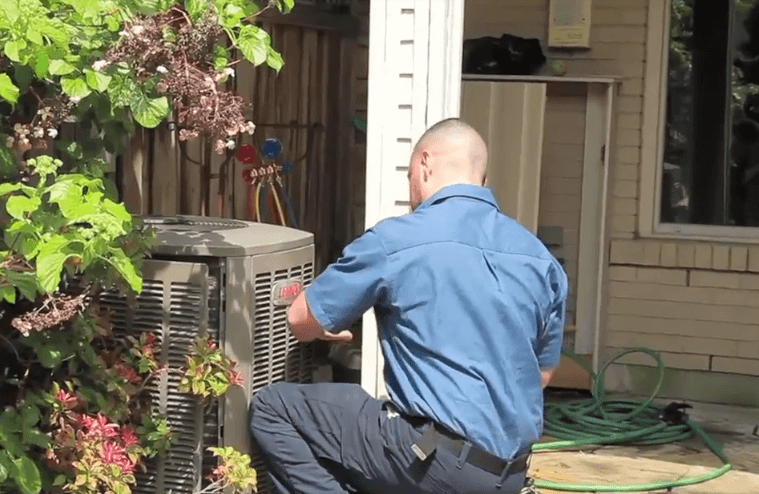Air conditioners work hard when temperatures start to climb in the middle of the summer. Unfortunately, the more you run your AC unit the higher your electric bill will be. Can hot weather affect your AC in other ways? Read on if you want to learn more about how hot weather can affect your air conditioning.
When the weather is hot, AC systems are put to the test because they have to keep up with the demands of providing cool air. With that said, there are a few things you should know about running your AC in hot conditions. Let’s go into more details about the what and why…
Which Air Conditioner Is Right For Me?
Central AC systems are supposed to be designed to suit the size of your house and the amount of air that is required to heat or cool your home. The condenser and the size of the AC unit should be efficient for 98% of the average high temps in the area you live in. For that other two-percent, your AC will actually not be big enough.
If you were to install a larger system (which is a common mistake), then your system would be inefficient over 90% of the time. This is not a good thing. This is because a larger system will have no issues with pumping out a lot of cool air on very hot days.
When Air Conditioner is Not Cooling
Your AC runs more often during the hot weather and this means it is subjected to more wear and tear. You can alleviate this issue by performing regular maintenance on it, and this is why you should follow a regular maintenance program. By doing this, you can bet your AC will run at optimal performance once the hot months arrive.
However, you should understand that heat places another kind of stress on your AC. This can make it harder for it to move hot air from inside your home to the outside. An AC absorbs thermal energy from inside the home and then it sends it outside. Remember, an AC is actually a heat exchanger.
If the temps outside are really high, then ejecting heat becomes more difficult. This extra stress can make your AC work harder. Not only that, but the extra heat could end up making its way into the interior of the home.
Problems With The Component
The good news is high heat won’t really affect the internal parts of your AC unit. In fact, AC units are designed to withstand extreme temps. However, capacitors could end up suffering.
Capacitors may need to be replaced when the heat is excessive. If you turn your AC on and you notice a clicking sound coming from it, then it’s time to have it looked at. This is a major sign that you should have it fixed or replaced.
Juicing More Efficiency Out Of Your Air Conditioner System
You might need to do something to your AC if you want it to work reliably when the temperatures reach 100 degrees or higher. There are actually a lot of things you can do. Feel free to research a few tips to learn what you can do to save energy in relation to your AC.
In short, you can do things such as turning up the thermostat by a few degrees. Also, if there are rooms you aren’t using, then close them off when the AC is turned on. Make sure you close all doors and vents as this will keep cool air inside the rooms.
Another thing you can do is shade windows on the part of the house that the sun hits. You shouldn’t use the dry cycle on the dishwasher too. Instead, let them air dry. And on the hottest part of the day, you shouldn’t run your clothes dryer.
Book a service call or speak to an expert from Laird and Son today.
